Online event: “Stewardship for Circular Economy in urban contexts in Africa” featuring partners from multiple sectors
The sustainable management of natural resources requires shifting to a circular economy in which resources are used more efficiently, waste is reduced, and materials are recycled. During an online learning event organized by NatuReS on October 6th, 2022, partners from the public, private sector and civil society shared their experiences with promoting circular economy practices under a stewardship approach of cross-sectoral collaboration.
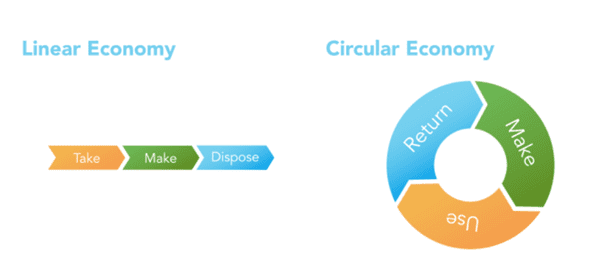
Why stewardship?
The circular economy framework brings a new approach to waste and materials management, considering the whole life cycle of resources, while paying attention to sustainable production, supply and management of resources. Transitioning to a circular economy requires a collaborative effort from all sectors and can only succeed through coordination along supply chains and product cycles. Establishing multi-stakeholder partnerships under stewardship principles has been a successful way to introduce circular economy practices across countries.
While supporting partners in moving towards a circular economy, NatuReS is dealing with cross-cutting and interlinked challenges. How can waste streams be improved in fast growing cities and catchments? How can their impacts on water quality, health, ecosystems and flooding be reduced, while strengthening economic growth? How can waterways that transport waste – and plastics in particular – to the oceans be better controlled? An integrated natural resource stewardship approach combines aspects that are relevant to address plastics management issues and green economic development challenges.
Partner experiences with circular economy partnerships
Mrs. Patience Nsereko, Principal Environment Officer at the National Environment Management Authority (NEMA) of Uganda, opened the floor with remarks about the Greater Kampala PET Plastic Recycling Partnership. She pointed towards the importance of partnering with the private sector, namely Ecobrixs, a Ugandan social enterprise working on plastic recycling, to come up with innovative solutions for the country’s plastic challenges. One example is the Innovation Hub, which was recently launched under the partnership at the International University of East Africa (IUEA) in Kampala. Students will be trained in recycling practices and enabled to start their own businesses in the sector. “Since Ecobrixs is already active in the market, we hope that this will help students to think outside of the box”, stated Mrs. Nsereko. Asked about partnership successes, she mentioned the improved cross-sectoral collaboration: “The regulations developed will have a better buy-in from the private sector, as policy recommendations have been actively requested by them.”
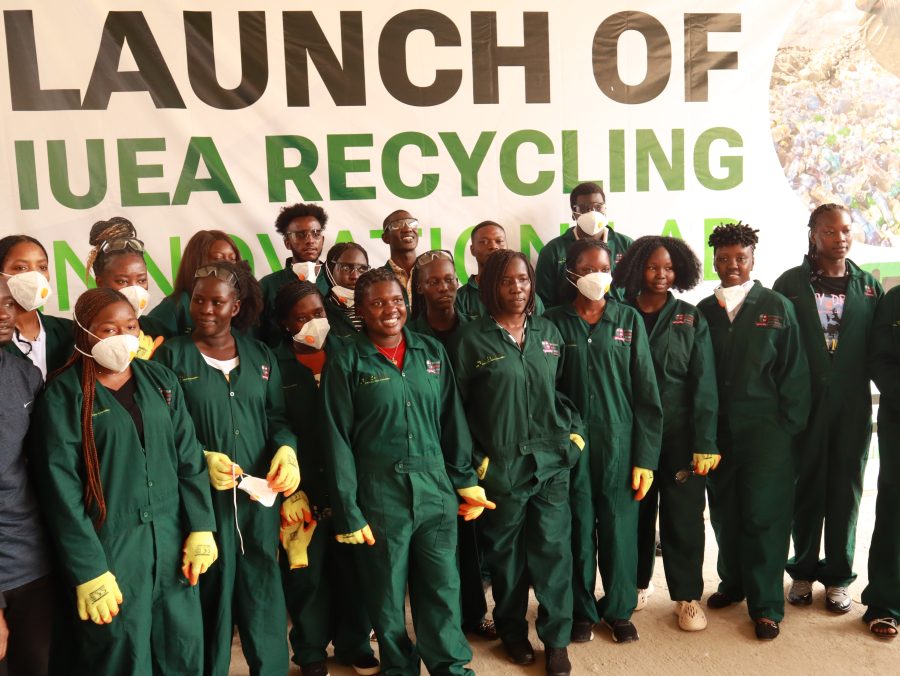
Naa Adjeley Kome-Mensah from the plastic recycling company and “African start-up of the year 2022”, Kubik, gave an input about their involvement in the Partnership for Circular Value Chains in Addis Ababa, Ethiopia. The company turns low-value plastic waste into building material. Under the partnership, waste collecting small and medium enterprises (SMEs) are trained in waste segregation and business management, as well as provided with collection tools, to enhance their efficiency of supplying plastic within the value chain. Kubik will then purchase the plastic for their production from these SMEs. A special focus lies on the empowerment of women, many of whom are working as informal waste collectors, capacitating them to become a formal part of the value chain.

The Lusaka Water Security Initiative (LuWSI), represented by its acting coordinator Mr. Kasenga Hara, who is also the Senior Inspector at the Zambian National Water Supply and Sanitation Council (NWASCO), is promoting circular economy practices as a means to increase water security in Lusaka. By protecting wellfields from solid waste pollution, for example, the water quality in the area is increased. The involvement of communities is key in this regard according to Mr. Hara: “It takes quite some energy to bring all partners on board, but without the increase of communities’ decision-making power, the partnership efforts are meaningless.”
Local solutions to global challenges
Partners from all sectors have come up with different local solutions to promote the circularity of value chains. What unites them is the realization that sustainable local solutions are only possible through the multi-sectoral collaboration under a partnership. Examples include the “Green Spaces” in Lusaka, where community members, mainly women, are turning organic waste into methane gas for cooking, compost as organic fertilizer to grow tree seedlings and vegetables, and as food for the production of black soldier fly larvae which is a good source of proteins for animals. This project was presented by Ian Matimba from People’s Process on Housing and Property Zambia and Alice Phiri who is a community member from Zambia Homeless and Poor People’s Federation. Different LuWSI partners committed to the green spaces, be it through resource mobilization, accessing the organic waste, capacity building or negotiating with local land owners and authorities.
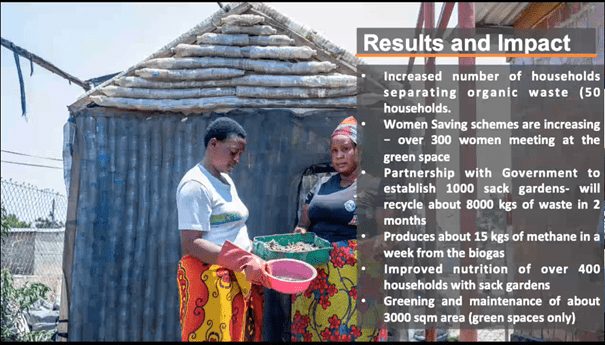
Andy Bownds, founder and CEO of Ecobrixs in Uganda highlighted the establishment of the Plastic Recycling Innovation Hub at IUEA as an important achievement which was made possible through the Greater Kampala PET Plastic Recycling Partnership. Together with NEMA, the company strives to create a platform for informal waste collectors under the partnership. This is key to empower the whole supply chain. At the moment, they are jointly establishing the Uganda Recycling Association made up of informal waste collectors. In the long-run, the aim is to create a fair-trade plastic recycling system in which it is possible to trace back under which conditions plastic has been collected and recycled. Thus, transparency and accountability along the value chain can be enhanced.
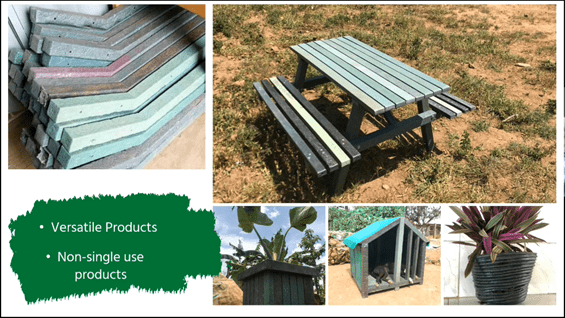
Finally, Takele Dessisa, Director of Research & Consultancy Services at the Addis Ababa Cleansing Management Agency in Ethiopia presented the manual baling machines developed and piloted under the Partnership for Circular Value Chains in Addis Ababa. Reacting to the fact that waste collectors need a way to efficiently store and transport the light yet voluminous PET plastic, yet do not have regular access to electricity, partners jointly developed manual baling machines. These are designed to be also handled by women and people with limited physical strength. A prototype has been tested at selected waste collecting SMEs and is currently being adapted according to feedback. Waste collectors can store and transport baled PET more easily and including at higher prices, which enables them to enhance their operations and hence their income. Through this intervention, partners aim at enhancing the efficiency of the plastic recycling value chain in Addis Abeba, thereby reducing the amount of plastic waste polluting the city’s soils and water bodies.
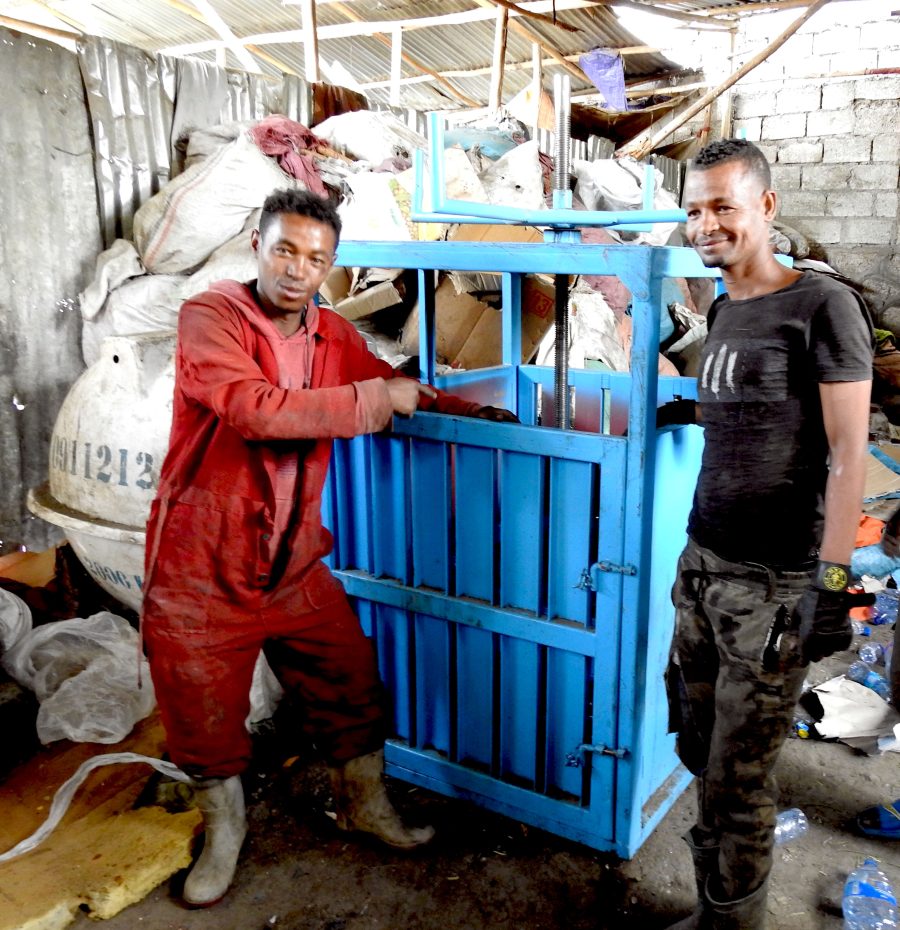
As different as the solutions to promote circular economy practices shown during the event were, they all have one element in common: without cross-sectoral collaboration, they would not have been possible. The stewardship approach of taking joint responsibility for shared natural resources has proven successful in the showcased examples.
For further information about the partnerships and to stay up to date, subscribe to our newsletter or follow us on Twitter!